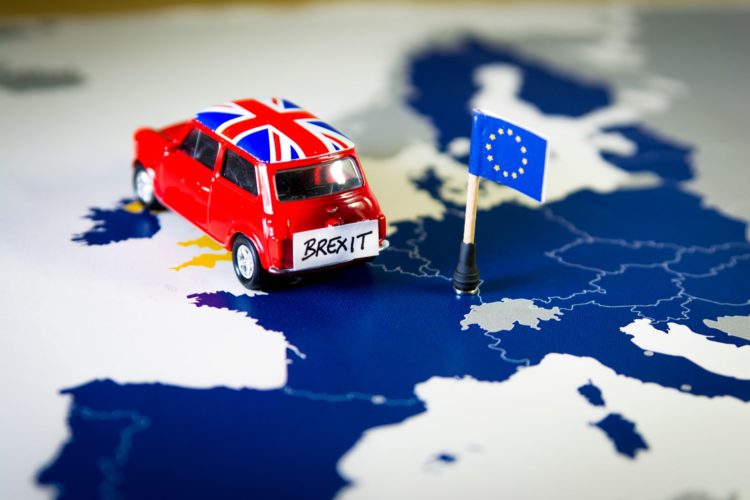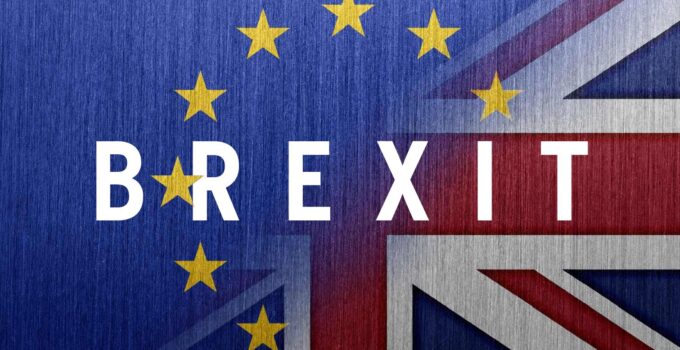Brexit has been looming on our horizon for years now, and many businesses are still waiting for the right guidance. Day-to-day operations can be time consuming enough, but now companies are expected to plan for a major change in European trade, and a continental shift in financial power.
Very little has been offered by the government to help businesses foresee what will happen, if and when the big day comes. But there are a few certainties we can prepare for, and measures we can take to ensure our work is disrupted as little as possible by Great Britain’s exit from the European Union. Here are a few things every business should think about when planning their Brexit strategy.

Img Source: twitter.com
Check Your Supply Chain
Roughly 60 percent of any UK businesses suppliers are based outside of the UK, and in the EU. Whatever deal, or no deal, is made for Brexit there is a strong chance that your supply chain will be disrupted. Even if you have a high number of local suppliers, they may well have EU suppliers upstream, and their supply problems will become yours. Currency fluctuations ahead of Brexit have already increased the costs of supplies for some businesses so it is evident that every UK business needs to plan ahead, and can save themselves some money now.

Img Source: blujaysolutions.com
By increasing the number of UK based suppliers to your business, and the number of UK manufactured products, you can ensure continued supply in the event of border chaos after Brexit. When you cannot source locally, crisis presents an opportunity. Your EU suppliers are in a similar boat to you, they need your custom as much as you need their supply. Now is a good time to re-negotiate contracts and try and lock down a post-Brexit price you can accept, or wait until after the UK’s exit and see if you can get a better price from the disruption it will cause.
Diversify Your Targets
If your business trades to a lot of EU countries, now would be a good time to market further afield so less of your profits rely on European Trade relations. China, the United States of America and Canada have all shown increased interest in Britishness and ‘Brand Britain’. The act of Brexit has brought British culture back to the fore of international minds, and many nations and their companies are eager to begin negotiating fresh trade deals when the country makes its exit from the EU.

Img Source: biba.org.uk
Online marketplaces have made it easier than ever for a small company or manufacturer to sell their products on the international stage, and the ease of which you can make a functioning e-commerce website leaves you no good reason not to start making global trade connections for your business.
Plan for Change
Some of the changes that Brexit will bring may be more unique to your business or sector. Some businesses have offices or employees across Europe and may have to plan how to administer payroll and human resource responsibilities across the EU, from the UK. Companies like Bradford Jacobs can offer businesses support when paying EU staff, post-Brexit.

Img Source: blog.leapin.eu
Pricing structures will also be affected by Britain leaving the European Union, as while Britain is a member state, there are no trade tariffs on goods crossing the English Channel. When Britain leaves, costs on goods are going to increase and prices will have to change to reflect this. Your prices may be changed by the cost of supplies coming into your business from European suppliers, or be increased by the tariffs your products will be subject to when sent to European consumers.
Brexit is coming, and we are going to have to be ready for it. Britain leaving the European Union presents a lot of opportunity for British businesses to grow. The increase in the price of goods from Europe can be a boon to British manufacturers, as their products will now be competitive in their home market. With some careful planning, Brexit can be an opportunity, and not the crisis that you might think it could be. Many companies are likely to panic, or not plan; don’t be left wondering what to do on Brexit Day and get your plan in place.





